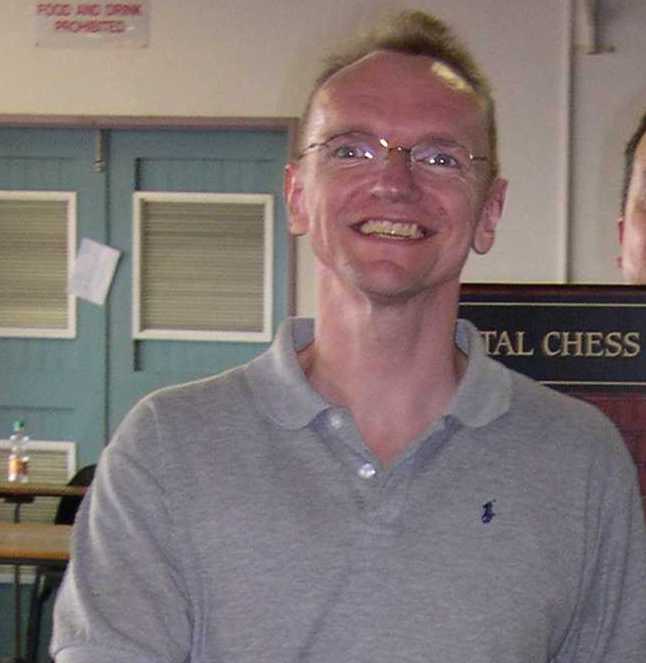
Peter Dankelmann, happy at winning
the 2004 Natal Open

I met Peter for the first time in 1993, soon after he arrived in
South Africa to take up a position as a Senior Lecturer in the Mathematics
department at the University of Durban. Peter went on to become a Professor
of Mathematics at the University of KwaZulu-Natal, before moving to the
University of Johannesburg, where he is currently a Professor.
Peter finished third on his debut in the 1994 Durban championship,
and won the event outright in 1998, with the fine score of 6½
out of 7. Since that victory he has finished third on a number of occasions,
but was unable to repeat his win until 2007.
I was privileged to attend Peter's inaugural lecture as a Professor, on his
field of mathematics, which is graph theory. I knew the basics about the
social theory of Six Degrees of Separation, whereby any person on
the planet can be linked to another via six friends. However, I had no idea
that this could be proved through graph theory. Peter also explained how
the Google PageRank algorithm was derived from graph theory.
Some years ago there was a discussion on the chess newsgroups about
"Morphy numbers" - how many opponents do you need to get a link back to
Paul Morphy? Serious games only, not simultaneous games! Mine came to 6
- based on 0.Morphy played 1.Bird played 2.Lasker played 3.Botvinnik played
4.Fischer played 5.Sanguineti played 6.Rust. That magic number 6 again!
Peter has competed in the Natal Open on numerous occasions, winning
the Natal Closed title in 2000, and being the outright tournament
winner in 2004 (see the separate report).
This is one of Peter's favourite games.